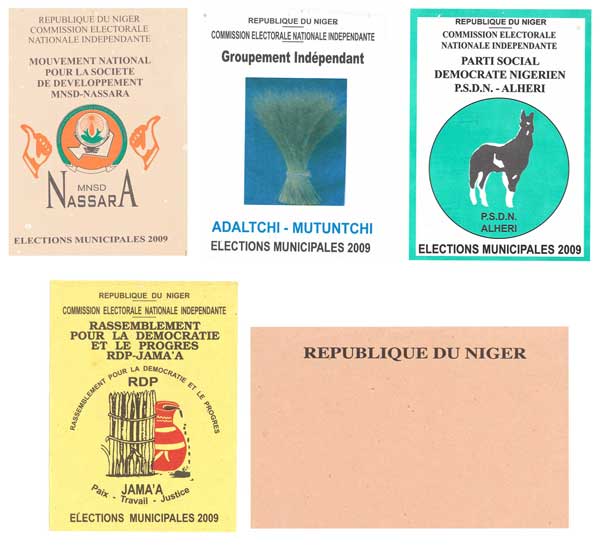Issues related to the ballot are resolved by Articles 60 through 72 of the Electoral Code. Elections are conducted by a secret ballot. In 2011, Niger introduced the use of a single paper ballot during the first round of presidential elections. Other elections are conducted with multiple ballots, one of which is inserted into an envelope before being placed in a ballot box by the voter. The Independent National Electoral Commission (CENI) has the jurisdiction to determine, by a written order, the specifications of the ballot. The State is responsible for the production and distribution of the single paper ballot.
The introduction of the single paper ballot required new attention from the voters. They needed to learn new voting methods. Previously, they picked up the paper ballot representing the candidate of their choice from multiple ballots each with distinctive features representing the parties and candidates. Now they must identify the name and photo of their candidate on the single paper ballot and to affix their fingerprint on the box representing their choice.
After the 2011 elections, all political leaders indicated that the state-issued ballot was “transparent and based on consensus.” For example, Seini Oumarou, the MNSD candidate (Seini Oumarou) who did not have the fortune of being elected, publicly congratulated his adversary, acknowledged his defeat and accepted the results of the election.
Useful links and documentary resources

This post is also available in: Français (French)

